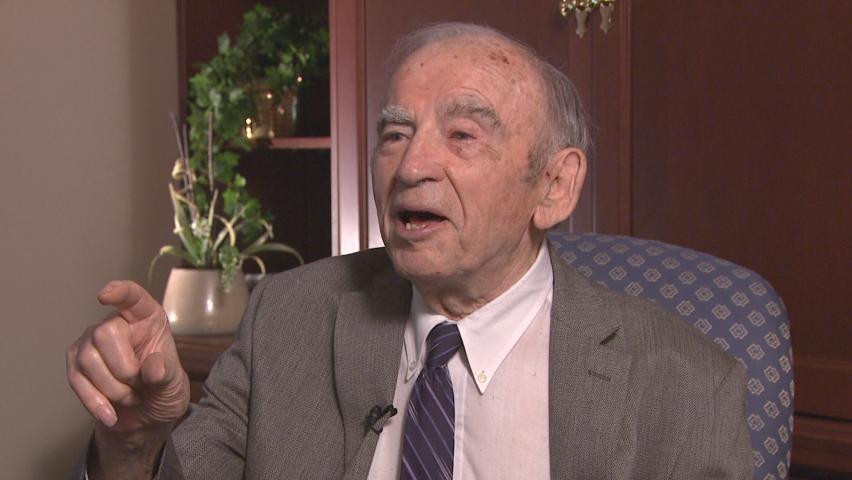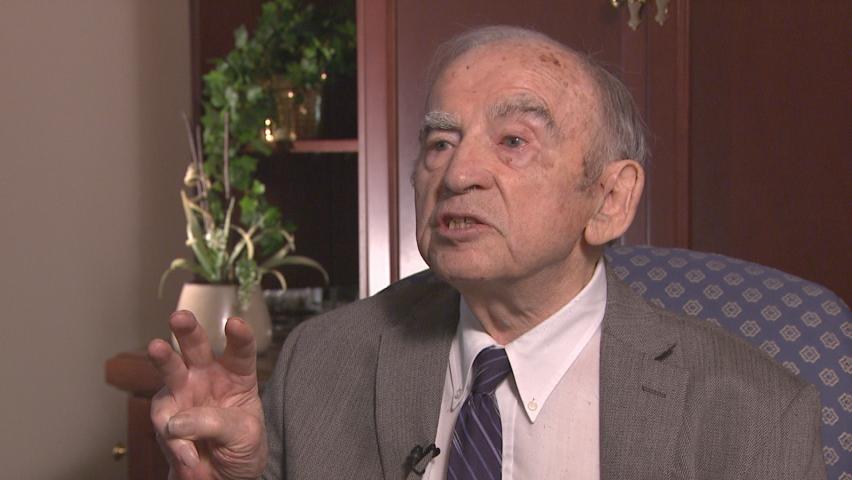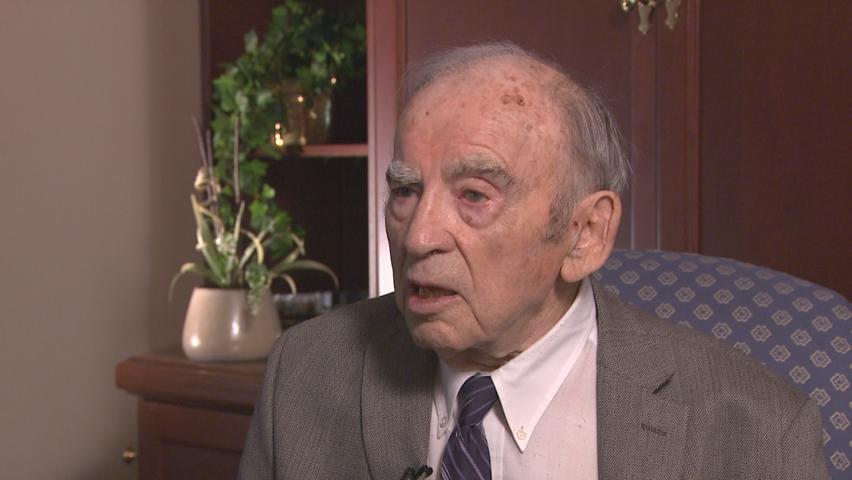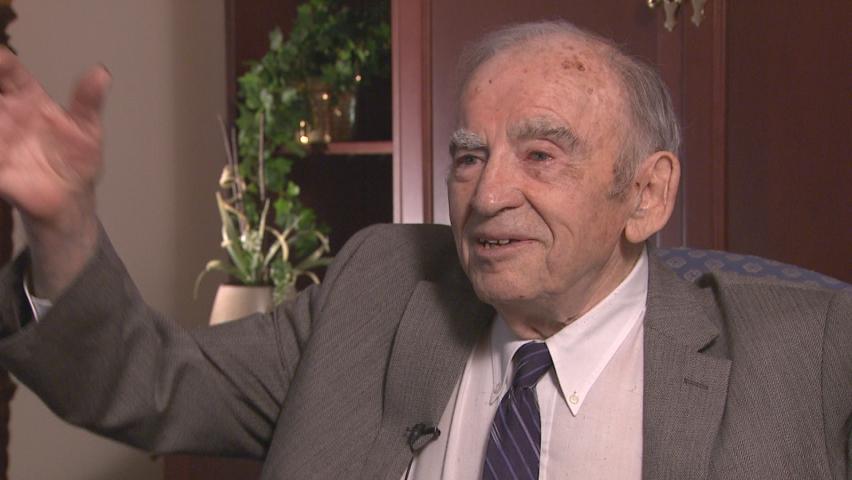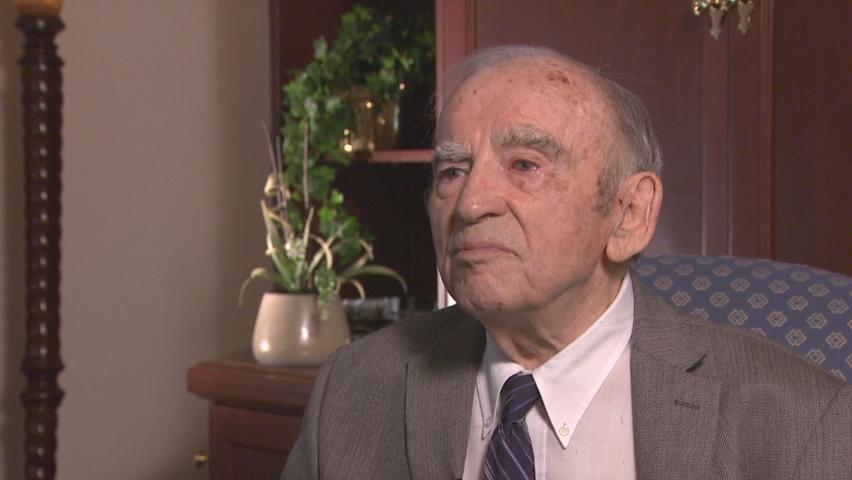I Knew Very Little About the Navy
Heroes Remember
I Knew Very Little About the Navy
I was seventeen at the time and
I knew nothing about the navy
except I think that’s what drew me to it
at the time because I knew less about it.
There were army barracks around Ottawa,
air force barracks but no navy barracks.
So, anyway, I knew very little about it.
I got to tell you that my first day in the
navy a petty officer said to me can you
go up on the upper deck and bring down this
particular object so I didn’t know
what the upper deck was.
I wasn’t sure whether he was talking about a
deck of cards but I learned.
He made me run up and down with a
shackle around my neck.
It weighed about fifty pounds.
I now know what the upper deck is.
So anyway, from there I went to Toronto
for initial training, just marching and
there I went to Halifax and took some
more training and was drafted to
Newfoundland in the summer of 1942.
There was a new barrack on
Lemarchant Road in Prince of Wales
was going up then called HMCS Avalon.
It was the beginning of; we were cleaning up the
grounds and one thing and another.
Well, I did this for a couple of months and
I got to tell you my first time leaving the
barracks, you know, HMCS Avalon,
to me it wasn’t a ship it was a barracks but
you had to be in by 2300 hours because
I was under age twenty, that was the rule.
Anyway and I got caught.
They gave me fourteen days number 11.
That meant running with a rifle over your
head for two hours, not steady.
The two hours, I don’t think that exists anymore,
number 11 they called it.
And the roads were very, very uneven and
very rocky in that barracks so you’d jog and
then you’d stop and hold the rifle behind
your neck for a while and when you
recuperated from the jog and stood there for
a while then your neck got sore.
And then you continued on
with the jogging for two hours.
I’m here which shows it wasn’t as
destructive as it sounds.
And then I got on my first ship,
it was HMCS Pictou, a corvette.
Well, I never saw a corvette before
even though I was in St. John’s, Newfoundland
I didn’t go down to the harbor and look at the
ships and I was amazed at how small
they were from the outside.
I thought we were really going to row across.
But when I got inside it was larger and
at the time I was the youngest one on
that ship and I was sort of hiding my age.
I didn’t want them to think a silly young
kid so I tried to act older.
At any rate we were ready to go to sea and
I began to feel a little woozy immediately,
aromas that didn’t exist before.
The moment the ship starts to roll you start to feel it.
Every odor you feel. The paint locker, the bacon
that they made for breakfast stays in the ship.
But anyway, I spoke to an old hand and I said,
“What do I do, I feel I’m getting seasick?”
He says, “You go on the upper deck and
stay there until we’re out of port.”
I did that, I stayed for about four hours.
I never got seasick after that. I beat it mentally.
I knew that I wasn’t going to get seasick and I didn't.
Well, I made a couple of trips and they
didn’t have the supplies or equipment then.
For example, you’d go on watch and
you’d get the duffle coat that the seaman before
you was on look out. It was totally wet.
And that’s the way it was and
everything seemed a little strange to me.
Related Videos
- Date modified:



